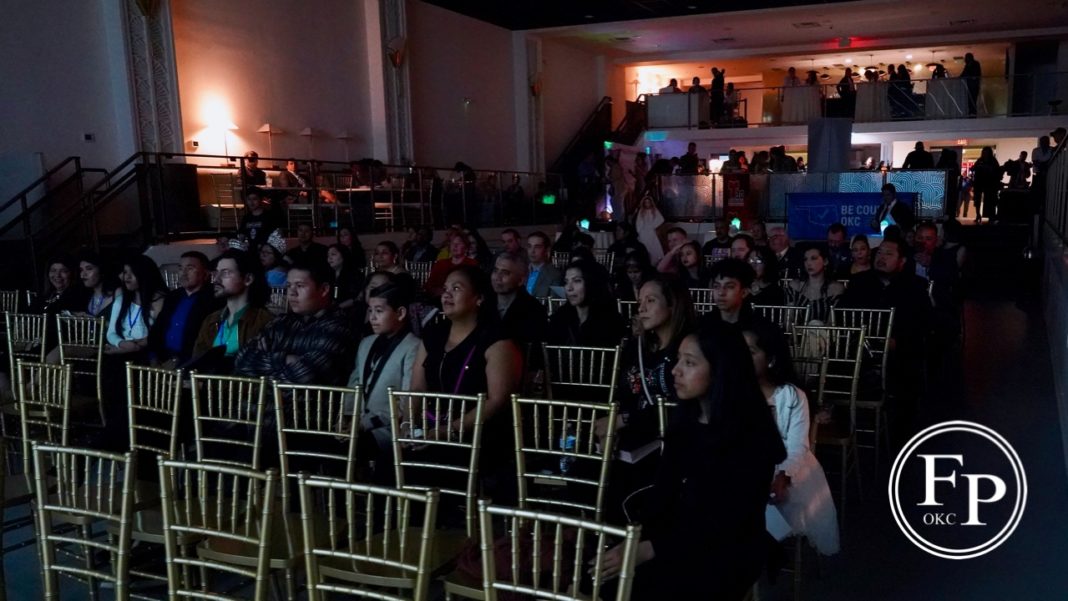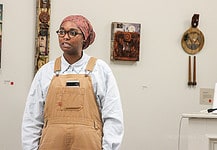Last Updated on March 9, 2020, 9:13 AM | Published: March 8, 2020
With its distinctive ideas and narrative styles, the worldwide Latinx film community continues to flourish, and for six years, OKCine Latino Film Festival has offered its enthusiastic support for both the medium and its messengers.
The opening night of the festival, March 7 at the historic Yale Theater, 227 SW 25th St., featured 11 short films and offered attendees a broad-based look at what Latinx directors, actors, writers, and crew are bringing forward.
(See notes and trailers on Friday evening films entry by entry at the end of this report.)
Slow, strong growth
“I think it’s been a slow growth, but very strong,” said Rogelio Almeida, executive director of OKCine. “We’ve gotten a lot more participation from the community and from the filmmakers themselves. It’s been amazing to see that growth here in Oklahoma City.”
Almeida and his team started the festival six years ago in the basement of El Nacional, the venerable Spanish-language newspaper that has served the Latinx community in Oklahoma since 1988.
After staging the festival at the Oklahoma City Boathouse District and Oklahoma City Community College, OKCine passed a major milestone this year as it opened the festival its new home, the Yale Theater, a 1910 theater that reopened in 2019 with a completely renovated art-deco design.
Latinx art
Now that the festival is attracting filmmakers from throughout the Latin world like “Dia de las Carpas” director Joao Dall’Stella from Brazil, Rodrigo Soperia from Spain and Colombia director Gustavo Carvejal, Almeida feels like OKCine is finding its footing and effectively spreading its message, promoting Oklahoma as a destination for Latinx art.
“We’re a very grass-roots festival, very independent,” he said. “We don’t have the means that other festivals have and rely a lot on the movement, community, word of mouth.”
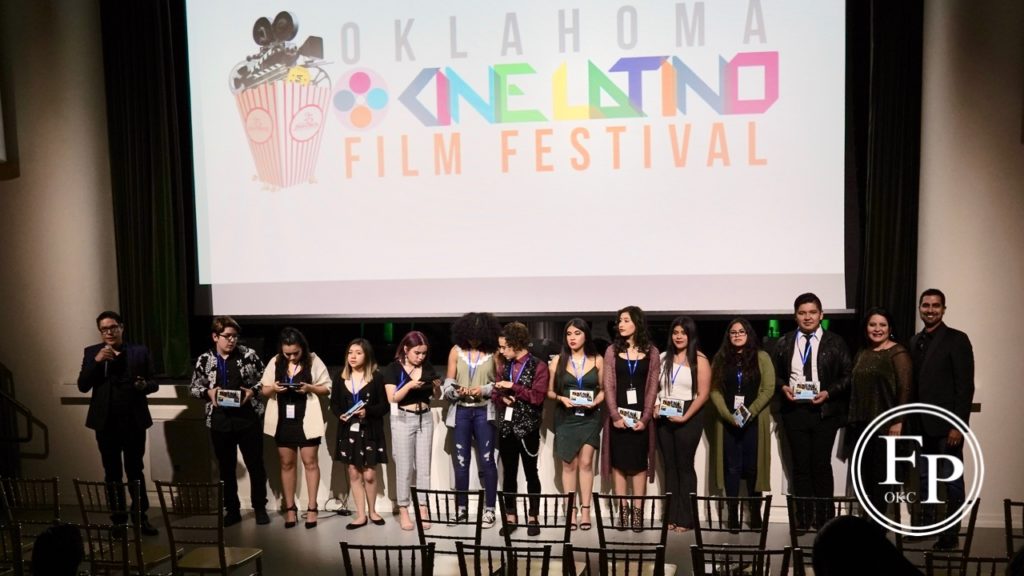
Almeida first gained attention for his work in filmmaking, winning the 2010 deadCenter Film Festival with his first short film, “Yveete.” Since, deadCenter maintained a close relationship with OKCine.
Outgoing deadCenter executive director Lance McDaniel, who will step down in June following the 20th anniversary and will be succeeded by the current director of festival and operations Alyx Picard-Davis, said that part of deadCenter’s mission is to provide strong support for up-and-coming festivals.
“We became friends then and we worked with him for a few years, and then he came to us and said, ‘I’d like to start a Spanish-language film festival. Will you help me?’” McDaniel said. “So, for the first year, we programmed the films, except he did all the short films and programmed the contest part. I think we were helpful for sure. It has been his project from the very beginning, but I think one of the reasons it has thrived is because Capitol Hill took it on. It has been important for the neighborhood, and after six years, I feel like it could go on forever.”
Neighborhood party
Gloria Torres, a former principal in Oklahoma City Public Schools, recently became executive director for Calle Dos Cinco, the business district surrounding SW 25th Street.
Throughout the mid-20th century, the thoroughfare also known as Commerce Street was a major center for shopping and business until the rise of shopping centers such as Crossroads Mall, Penn Square Mall and Quail Springs Mall that pulled retail businesses toward the edges of the city. She said OKCine’s move to the Yale Theater is part of a major push to revitalize the district.
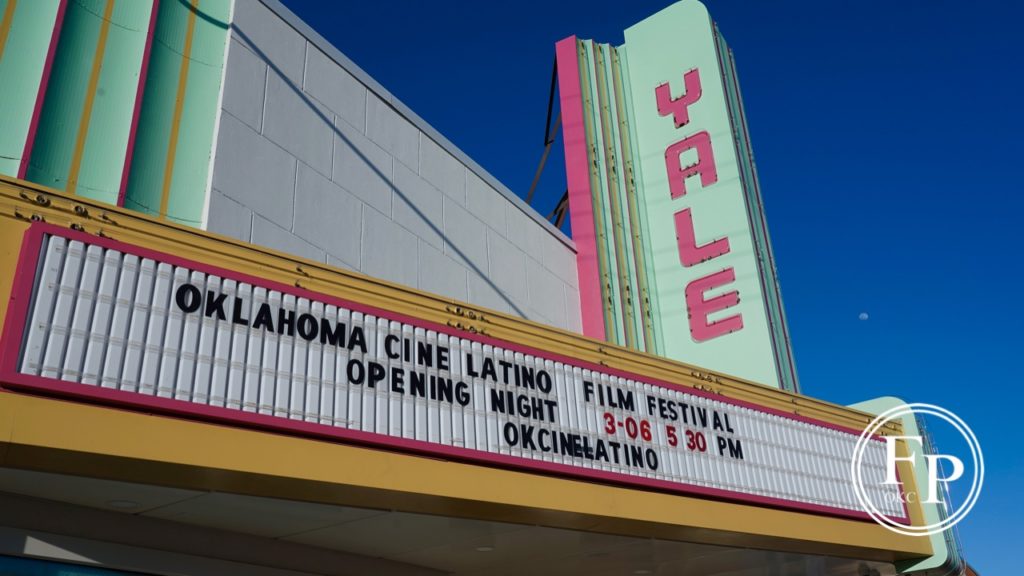
“This is the one we’ve been waiting on,” Torres said. “It’s taken the investment from Aimee Ahpeatone and Steve Mason to allow us to have this — this is what it was built for.”
Many of the businesses in the district are contributing to the festival, including Tango PR and Capitol Hill Graphics, which Torres said is helping to bring the community closer together.
“They’re all contributing to this, and this is all contributing to them,” she said.
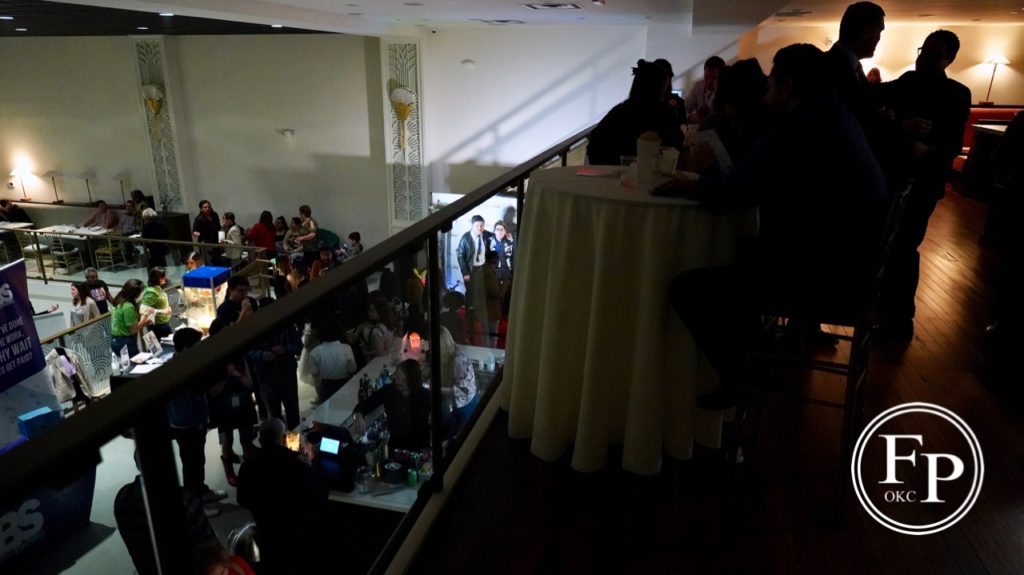
Acclaimed singer-songwriter Linka Elizondo began her association with OKCine Latino when she was asked to perform at the festival in 2016. Now an assistant manager for the festival, Elizondo said that OKCine is reaching a new level this year, and the new location is part of that excitement.
At first, she said, residents were hesitant to embrace the Yale Theater — its beautification made it feel out of place. Now, she said, community members are seeing it as a symbol of the possibilities for the entire district.
“The community is showing up and seeing that this venue is for us,” she said.
Projections
A simmering tension threaded through most of Friday’s short films, a sense that much is unresolved in the Latinx community and art might be the best way to communicate that daily struggle.
Four of the 11 films screened Friday night focused directly on immigration issues and overreach by Immigration and Customs Enforcement (ICE), while others explored LGBTQ+ issues and inequality within Latin countries — between sexes or between cultures.
Big winners for the evening included director Marc Martinez Jordan for the science fiction short “Tu Ultimo Dia En La Tierra,” Martina Meneses for the law enforcement drama “The Same Blue,” and multiple winner “Everybody Changes,” a feature-length film assaying the emotional and social challenges of gender reassignment.
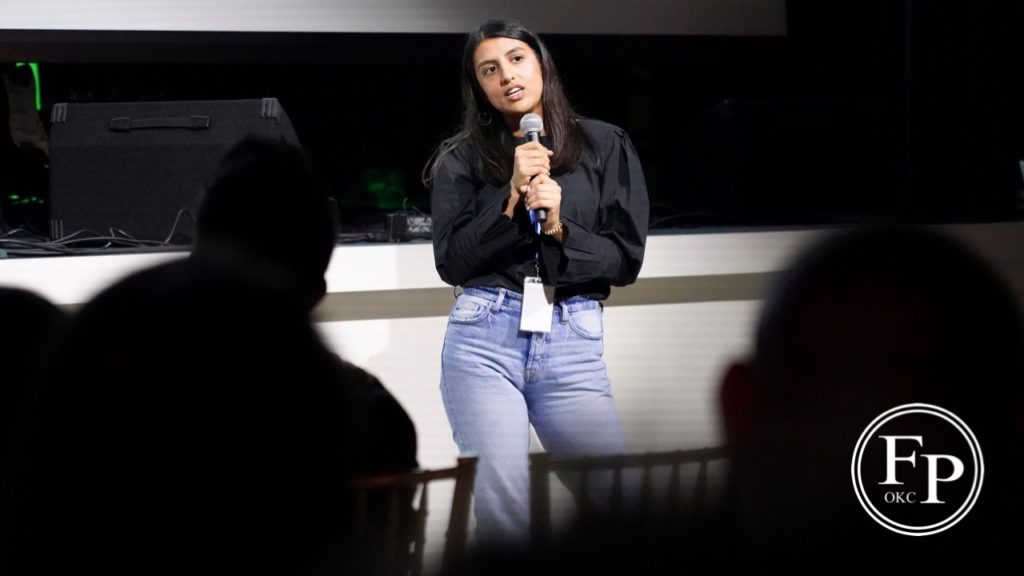
“Todo Esto y Mas” director Lupita Gonzalez used the film — her first as a University of Oklahoma senior — as a vessel for exploring the importance of immigration for the evolution of a nation and its ideas, particularly in the arts.
When asked whether her film about art students expressing their points of view as immigrants was a response to the recent actions taken against immigrants by President Donald Trump, Gonzalez said that most art is inherently political.
“I think I’m drawn to the political, especially in the time we live in when we are constantly being fed xenophobic and racist rhetoric from the highest office in our country,” she said. “What would our country be like if all of our parents, our grandparents and our great grandparents hadn’t immigrated here?”
The Friday evening films entry by entry
“Plane Pretend” Austin-based director Sharon Arteaga’s coming-of-age film centers on Pilar (Emilce Trinidad), a 14-year-old undocumented immigrant who, with help from her Aunt Ester (Marita De La Torre), is trying make her way to Corpus Christi with brothers Noe (Alen Mayagoitia) and Samuel (Sergio Torres) to join their parents. Set in 1980 in the Texas border town of McAllen, Plane Pretend offers a nostalgic look at an earlier time in border crossings, when anti-immigration rhetoric was just starting to become a regular topic in political discussions.
“The Other Border” This documentary short from director Justin Zimmerman offers a first-person account of the consequences of a June 5, 2018 U.S. Immigration and Customs Enforcement (ICE) impact sweep in Ohio. A seemingly random visit from ICE agents ensnared high school student Gerardo Hernandez, who had lived in the U.S. since he was six months old. In seven minutes, The Other Border helps humanize the struggle of DREAMers and other immigrants who spend their entire lives in a country working to deport them.
“The Same Blue” A tense drama built on the pressures immigrants can feel to stay quiet and toe the line, The Same Blue tells the story of an Emergency Medical Technician (Martina Meneses) struggling with her possible future in medicine and whether to cover for a dirty cop in the present. Meneses assesses her role with conviction as she confronts prejudice against immigrants and corruption in her own force.
“¿Como Vuelan Las Flores?” Documentarian Roberto Salvador follows the journey of Xochitl, a Huastecan fabric artist specializing in the traditional floral dresses that her native Mexican community has crafted and worn for hundreds of years. Because the dresses now command high prices in other countries, Xochitl travels to Spain to make a case for more respect and higher commissions for her people’s work. Some of the best scenes in ¿Como Vuelan Las Flores? explore the contrast between a young woman who lives much as her ancestors did and the Spanish metropolises she lobbies.
“La Gringa” Echoes of revisionist westerns waft through this feminist tale about a loner from the north (Adrianna Gentile) who battles against the misogyny of a small town that refuses to let her step into a cantina and have a drink. Despite the heavy message, director Alex Verlage plays it for good humor, allowing Gentile to have fun with the scenario while literally blowing away the patriarchy.
George Lang has worked as an award-winning professional journalist in Oklahoma City for over 25 years and is the professional opinion columnist for Free Press. His work has been published in a number of local publications covering a wide range of subjects including politics, media, entertainment and others. George lives in Oklahoma City with his wife and son.
